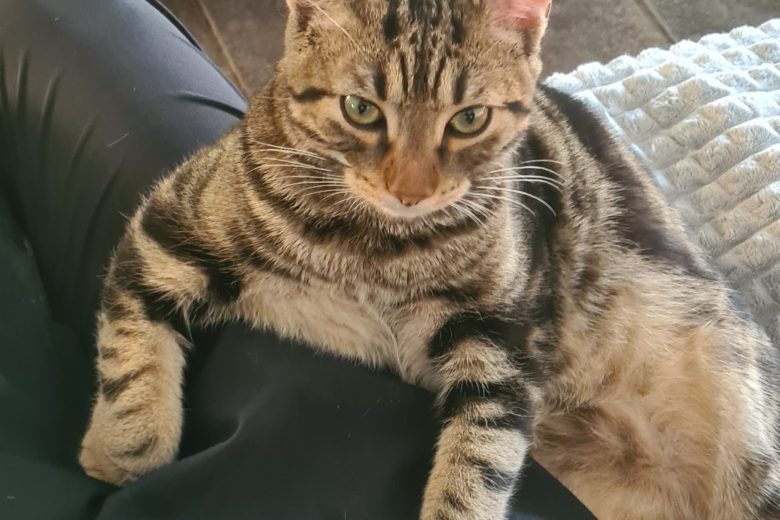Cultivating Closeness: How Can I Raise My Kitten to Be Clingy? (And What to Consider)
Many cat owners dream of having a feline companion that’s always by their side, a purring shadow seeking constant affection. The desire to bond deeply with your kitten is natural, and while “clingy” might not be everyone’s ideal, fostering a strong, affectionate bond is certainly achievable. So, how can I raise my kitten to be clingy, or, more accurately, how can I nurture a close and loving relationship?
It’s important to preface this by saying that every kitten has a unique personality. Some are naturally more independent, while others are inherently drawn to human contact. Attempting to force a kitten to be “clingy” can be counterproductive and even harmful. Instead, focus on creating a loving and secure environment that encourages your kitten to seek your company.
Understanding Kitten Behavior and Bonding
Before diving into specific techniques, it’s crucial to understand how kittens form bonds.
- Early Socialization: The first few weeks of a kitten’s life are critical for socialization. Positive interactions with humans during this period lay the foundation for a strong bond.
- Positive Reinforcement: Kittens respond well to positive reinforcement. Rewarding affectionate behavior with treats, praise, and petting reinforces that behavior.
- Creating a Safe and Secure Environment: Kittens that feel safe and secure are more likely to seek comfort and affection from their owners.
- Individual Personalities: Remember that each kitten has its own personality. Some are naturally more independent, while others are more affectionate.
How Can I Raise My Kitten to Be Clingy? (Nurturing Affection)
Instead of focusing on creating a “clingy” cat, aim to cultivate a deep and loving bond. Here are effective strategies:
- Early and Frequent Interaction: Spend plenty of time interacting with your kitten from a young age. Gentle handling, cuddling, and playtime are essential.
- Positive Association: Create positive associations with your presence. Offer treats, toys, and affection when you’re around.
- Consistent Routine: Kittens thrive on routine. Establish a consistent feeding, playtime, and sleep schedule. This provides a sense of security and predictability.
- Gentle Handling and Cuddling: Handle your kitten gently and frequently. Cuddle them when they’re relaxed and receptive.
- Interactive Playtime: Engage in interactive play sessions with your kitten. This strengthens your bond and provides mental and physical stimulation.
- Provide a Cozy and Comfortable Environment: Create a warm and inviting space for your kitten. Provide comfortable bedding, scratching posts, and toys.
- Respond to Their Needs: Pay attention to your kitten’s cues. Respond to their needs for food, water, attention, and play.
- Use Positive Reinforcement: Reward affectionate behavior with treats, praise, and petting.
- Respect Their Boundaries: While you want to build a strong bond, it’s essential to respect your kitten’s boundaries. Don’t force affection if they’re not receptive.
- Create a Safe Haven: Make sure your kitten has a place where they feel safe and secure, like a cat tree or a cozy bed. This will help them feel secure in their environment, and more likely to leave that space to be with you.
- Verbal Affection: Talk to your kitten in a soft and gentle voice. They will learn to recognize your voice and associate it with positive interactions.
Addressing Potential Issues
- Over-Attachment: While a strong bond is desirable, excessive clinginess can be a sign of anxiety or insecurity. If your kitten exhibits excessive clinginess, consult with your veterinarian.
- Independent Personalities: Some kittens are naturally more independent. Don’t force affection if they’re not receptive. Respect their boundaries and allow them to come to you on their own terms.
- Separation Anxiety: If your cat shows signs of anxiety when you leave, slowly acclimate them to being alone for short periods. Provide them with toys and enrichment activities to keep them occupied.
The Importance of Balance
While fostering a close bond is important, it’s also essential to allow your kitten to develop independence. A healthy balance between affection and independence is crucial for their well-being.
Long-Term Benefits of a Strong Bond
A strong bond with your kitten provides numerous benefits for both you and your feline companion.
- Companionship: A loving and affectionate cat provides companionship and emotional support.
- Reduced Stress: Petting and cuddling your cat can reduce stress and anxiety.
- Improved Well-Being: A strong bond enhances the overall well-being of both you and your cat.
What to Avoid:
- Punishment: Never punish your kitten for seeking affection. This will only create fear and distrust.
- Ignoring Their Needs: Ignoring your kitten’s needs can lead to anxiety and insecurity.
- Forcing Affection: Forcing affection can damage your bond and create negative associations.
Conclusion
How can I raise my kitten to be clingy? The answer lies in creating a loving, secure, and stimulating environment that encourages your kitten to seek your company. Focus on building a strong bond through positive interactions, consistent routines, and gentle handling. Remember that every kitten is unique, and respecting their individual personalities is key. By nurturing a loving relationship, you can create a lifelong bond with your feline friend.
